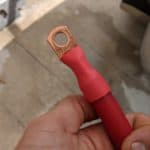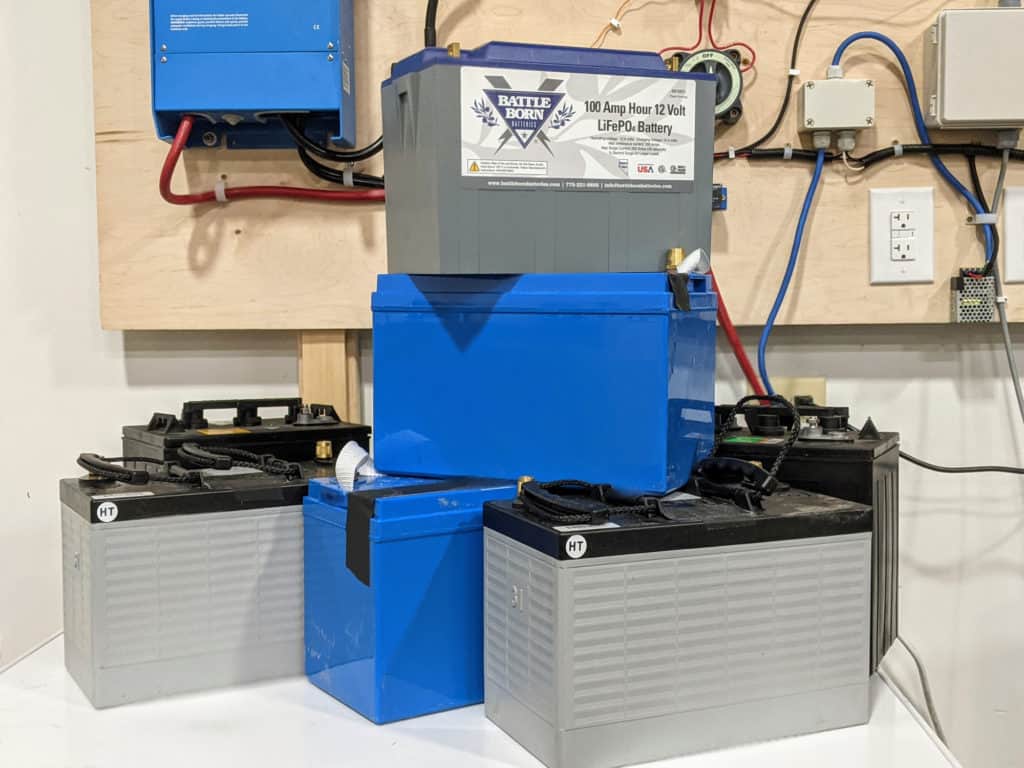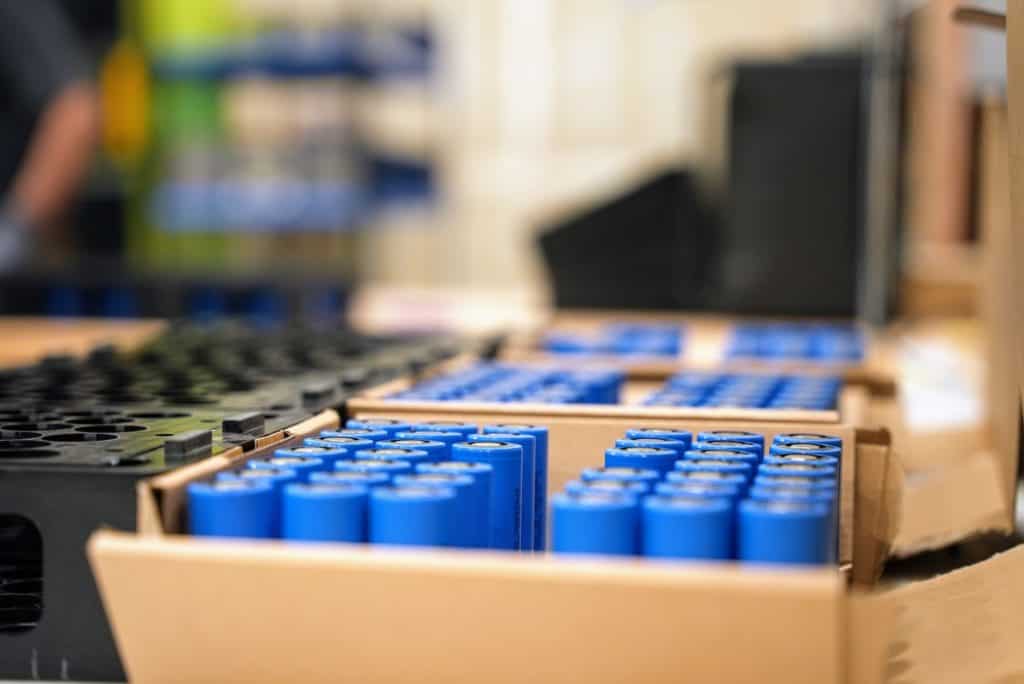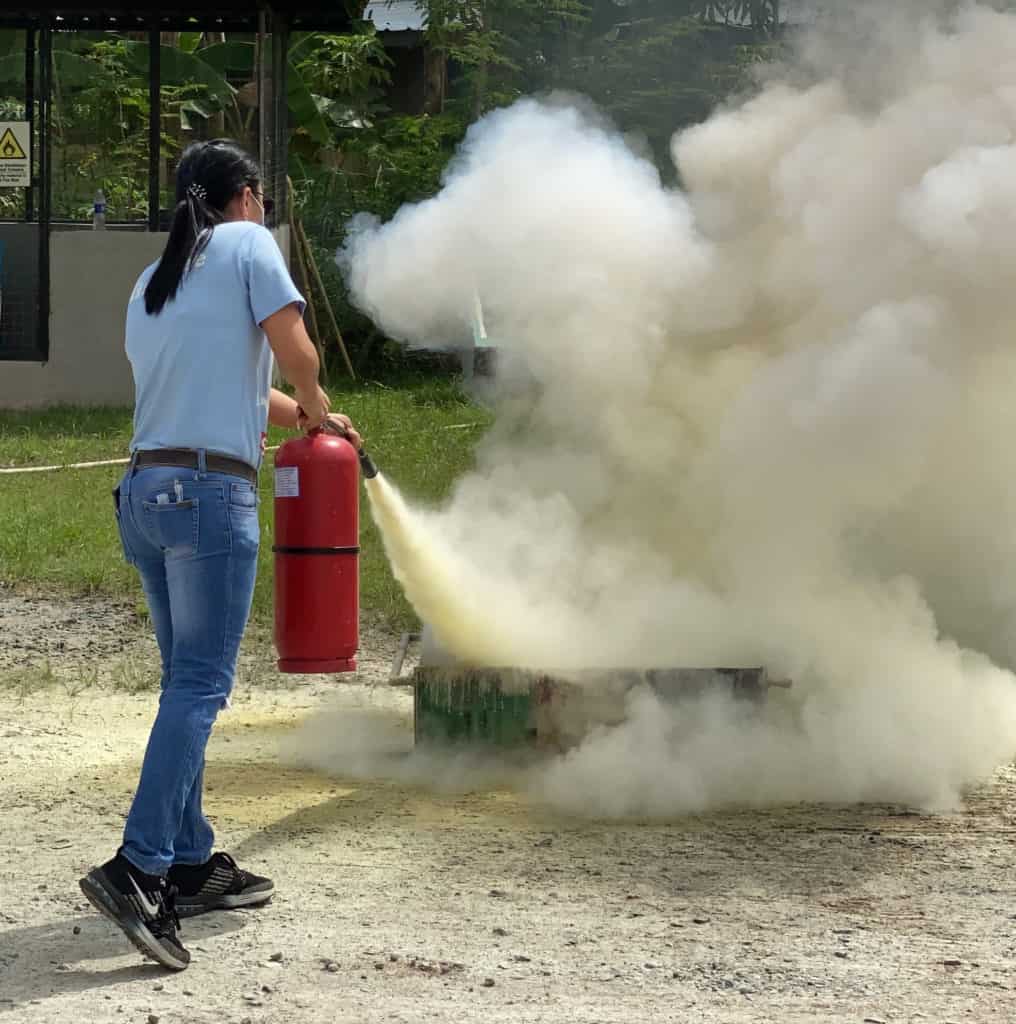
MENUMENU
TALK TO AN EXPERT
Special Hours: 7AM – 6PM PST
TALK TO AN EXPERT
Special Hours: 7AM – 6PM PST
Lithium-ion batteries are increasing in popularity as a powerful, lightweight, versatile energy storage solution. But along with all these benefits come some rare but potentially severe risks–we’re talking about lithium-ion battery punctures.
You’ve likely heard a horror story about a battery-related fire, so what should you do if you get in an accident and damage your lithium batteries? We’re breaking down the most important things to remember to stay safe.

Make no mistake about it–lithium-ion battery punctures can be extremely dangerous. The risks are two-fold, with different causes and results. Users of lithium-ion batteries need to be aware of both.
A punctured lithium-ion battery can lead to a serious fire in some cases. Potent electrolytes can leak through the hole, often creating chemical reactions that release heat. This heat can then damage other battery cells, creating a chain reaction of damage.
This process is called thermal runaway. It’s a self-reinforcing cycle that can lead to battery fires or other combustion events.
As the electrolyte chemicals react with the air and one another, they can also produce potentially hazardous fumes. These include deadly carbon monoxide or hydrofluoric acid, which can irritate the skin hours after exposure.
While not as immediately apparent as a fire, these can also pose life-threatening risks to those breathing these fumes.
While people often cite the dangers of lithium battery punctures as drawbacks to the technology, lead-acid battery punctures have similar dangers already.
Even if it is a sealed lead-acid battery, punctures almost always lead to acid leaks. These acid leaks can cause acid burns, corrosion, and equipment damage.
If the puncture is severe, the lead plates can make contact with each other and create an internal short within the battery. This almost always causes the battery to start heating excessively. This in turn can cause the battery itself to catch fire or begin boiling flammable hydrogen sulfide gas.
So, no matter what type of battery you have, treat punctures seriously and immediately.

However, not all batteries have the same level of puncture risk. The lithium chemistry used and their construction determines puncture resistance.
There are 6 main types of lithium-ion batteries, of which lithium iron phosphate (LiFePO4) is considered one of the safest. This is due to its low resistance and high thermal runaway threshold, it is inherently safe and highly stable.
But even with the safest chemistry, not all lithium batteries are built the same. There are three primary types of LiFePO4 lithium-ion battery construction: cylindrical, prismatic, and pouch cells.
Pouch cells are the most prone to puncture. In these batteries, the anodes, cathodes, and other battery components rest in a flexible foil pouch. Naturally, this provides them relatively little protection against puncture.
Prismatic lithium-ion cells offer an additional layer of protection. Here, hard plastic or metal shell shields the battery components. Still, puncturing them is relatively easy due to their large, flat surface area, especially in models with flimsier casings.
Cylindrical cell batteries resemble a typical battery you’d buy at the store. The anodes and cathodes are in thin sheets that are rolled together and packaged into a metal cylinder. This hard, shell-like coating and unique battery shape make it much more difficult to puncture than prismatic or pouch varieties.
However, note that all lithium batteries can experience a puncture under the right circumstances; there is no “puncture-proof” battery.

If a lithium battery gets damaged in an accident, assess the situation immediately and always err on the side of caution.
If you don’t already know the chemistry and cell type of your batteries, try to find out as quickly as possible. The proper course of action following a lithium-ion battery puncture will depend on which type of battery you have.
If you puncture a pouch or prismatic lithium-ion battery, act fast. You must get away immediately, as these types are liable to catch fire quickly. Alert the fire department if possible. If there’s no fire after 24 hours or you’ve contained a small one, you can safely remove the battery from your electrical system.
If you somehow puncture a cylindrical cell, proceed with caution, but it’s a less serious emergency. Remove your punctured cylindrical cell from your electrical system as soon as possible, and place it somewhere a fire won’t spread in case it ignites. Call your local fire department for advice on how to proceed.
In both cases, you must follow any local, state, or federal laws that may apply when disposing of punctured or damaged lithium-ion batteries.
You might be tempted to use water to extinguish your lithium battery fire. However, this is a bad idea. Water can overreact, creating toxic gases that can ignite and worsen the blaze.
Your first step after discovering an active or potential lithium-ion battery fire is to get yourself and your loved ones to safety. If feasible, try to put out a lithium-ion battery fire. You’ll need to use a standard ABC or dry chemical fire extinguisher – NOT a Class D extinguisher geared toward fighting combustible metal fires.
If the fire is small and you catch it early, you can likely put it out on your own. However, don’t put yourself in danger, and know when to call the professionals.

Let’s start with the number one thing you should NOT do, which is to just throw your battery in the trash or recycling. As we’ve mentioned, a lithium-ion battery puncture can lead to severe fires or dangerous fumes, and simply placing it with other waste is a recipe for disaster.
Furthermore, even if your battery doesn’t sustain severe damage to begin with, it likely will during the trash collection and transportation process. That puts other people at risk.
Your best bet is to check for disposal instructions on the device or battery itself if this is safe and possible. If not, contact the manufacturer for guidance on disposing of the battery. They may direct you to a local, state, or federal official or center that can define the best course of action.
While you may have heard about special battery or hazardous waste recycling centers, it’s still best to check with officials before dropping it off. Not all accept damaged batteries.
While a lithium-ion battery puncture is an ever-present risk, the threat to your safety is generally low compared to the many benefits of this helpful technology. By choosing the proper batteries and installing and treating them correctly, you’ll prevent many serious incidents from the get-go.
Still, all it takes is remembering these simple guidelines to help you make it through any potential fires unscathed. With this knowledge in your armory, you can use lithium batteries with confidence.
We know that building or upgrading an electrical system can be overwhelming, so we’re here to help. Our Reno, Nevada-based sales and customer service team is standing by at (855) 292-2831 to take your questions!
Also, join us on Facebook, Instagram, and YouTube to learn more about how lithium battery systems can power your lifestyle, see how others have built their systems, and gain the confidence to get out there and stay out there.
Shop Best Sellers








Ask a technical specialist now at 855.292.2831
Stay in the Know
Take our short Customer Survey for a chance to …
WIN a $300 Visa Gift Card